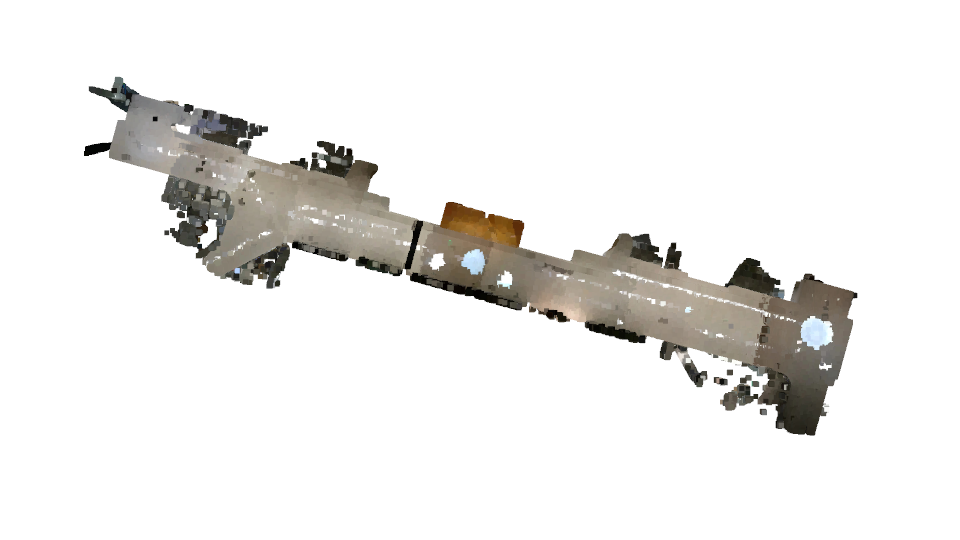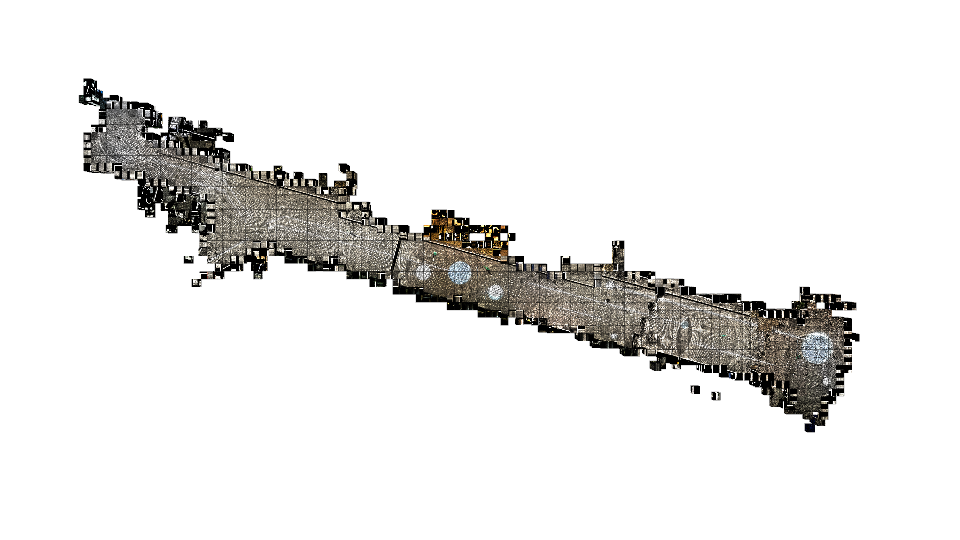A simple tool to turn dense colorized point cloud to Minecaft-style cubes, i.e. point cloud voxelization using Cube with Textures.
The program reads a dense colorized point cloud, voxelize it while storing points in a CuTe. Then all points in one CuTe are rasterized to its 3 surfaces. The surface with the largest projected alpha will be the primary surface of the CuTe. The texture of the primary surface will be the texture of the CuTe. Then, all textures are clustered into several labels using K-means algorithm. A simple color histogram based feature extractor is used to process texture images for K-means clustering. The user could provide a texture lib to specific the initial clustering centers. The user could also use another more detailed texture lib when render the CuTes.
pip install -r requirements.txt
python main.py --config config/config.yaml
This will run all the processing, inclusing voxelization & rasterization, clustering, and rendering.
A typical config file is located at config/config.yaml. Run
python main.py --help
to see more details.
python main.py --RAST_ONLY --VISUALIZE
The output will store in data/<exp_name>/cube_<cube_size>/*<texture_size>
The sid<texture_size>.npy is the numpy array of primary surface id.
python main.py --RAST_ONLY --VISUALIZE
The clustering label will store in data/<exp_name>/cube_<cube_size>/label<texture_size>
python main.py --RENDER--ONLY
The result with flag RENDER_RAST is the second image above.
- A better point rasterization weighting scheme (file
cute_rasterization.py) - A better texture image feature extractor (file
cute_cluster.py) - A way to make use of the rasterized alpha data for each cuTe.
- A more comprehensive texture lib
This repo heavily depends on Open3D.
Thanks to the textures from KygekDev/default-textures.


